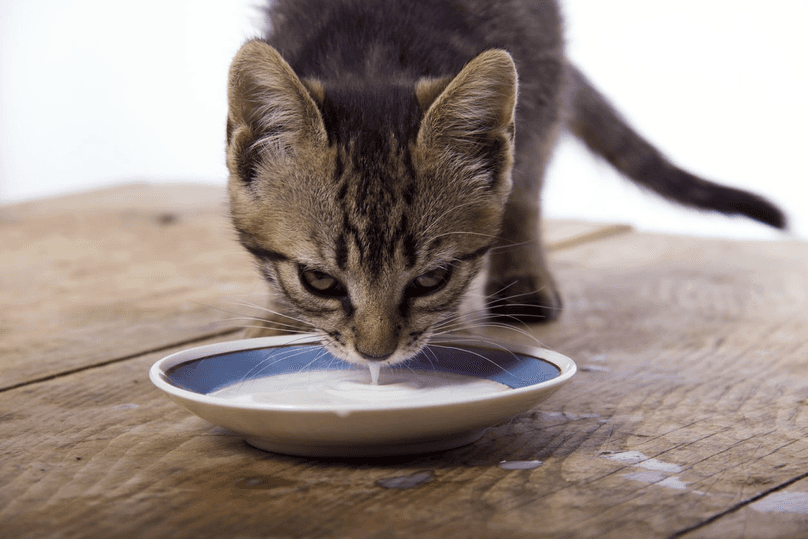
These days our cats are almost like another set of kids, but unlike children, the foods that are good for us aren’t always best for felines. To help you make more informed choices about the foods they eat, we thought it would be useful to share a common question asked by other cat owners.
Q: I just adopted a Siamese kitten named Wasabi.And while I feed him regular cat food, he also seems to enjoy lapping up milk (which I only give in small amounts). Should I be offering him milk? And what other human foods can cats have—safely?
A:While many people assume that cats love milk, the truth is that few animals naturally drink the breast milk of other species (humans being a notable exception). Fact is, most cats are lactose intolerant. This means they don’t have the enzymes required to break down lactose, which can lead to digestive issues including soft stools and diarrhea. While it’s okay to offer your cat a small amount of milk as an occasional treat, it’s best to avoid giving them milk as a regular part of their diet.
When it comes to human food, it’s important to remember that cats have different dietary needs than we do. While there are some human foods that cats can eat safely, it’s important to consult with a veterinarian before making any major changes to your cat’s diet. This is especially important if your cat has any health conditions or is already receiving a special diet.
Which Human Foods Are Safe for Cats?
There are some human foods that cats can eat safely in small amounts. These include:
- Cooked meat: Cats are carnivores , which means they require meat in their diet. In the wild they’d be hunters, so foods like cooked chicken, turkey and beef can be a good source of protein for them. It’s recommended to remove any bones and skin, as well as any seasoning, before offering cooked meat to your cat.
- Cooked fish: Fish can provide an excellent source of protein for cats. However, it’s important to avoid giving your cat raw fish, as it can contain harmful bacteria and parasites that are killed by heat. Cooked fish, such as salmon or tuna, can be a healthy treat for your cat.
- Vegetables: While cats are primarily meat eaters, some vegetables can be beneficial for their health. Cooked carrots, peas and green beans are a good source of fiber and vitamins for your cat (and are found in many kibble brands).
- Fruits: Some fruits, such as bananas and melons, are also healthy treats for your cat. Note: Avoid giving your cat grapes and raisins, as they can be highly toxic to cats.
What Human Food Should Cats Avoid?
There are some human foods that cats should avoid, since they can be harmful to their health. Be sure your cats don’t get into these common household foods:
- Onions and garlic: Onions and garlic can damage a cat’s red blood cells, leading to anemia. Avoid giving your cat any food that contains onions or garlic, including onion powder and garlic powder.
- Chocolate: Chocolate contains theobromine, a substance toxic to cats . Even a small amount of chocolate can cause vomiting, diarrhea and potentially seizures in cats.
- Alcohol: Alcohol can cause severe liver and brain damage if consumed by cats. It’s important to keep all alcohol out of your cat’s reach.
- Caffeine: Caffeine can cause restlessness, rapid breathing, heart palpitations, and muscle tremors in cats. Avoid giving your cat any food or drink that contains caffeine, such as coffee, tea and energy drinks.
- Choking hazards: Snack foods like popcorn, while not toxic to cats, offer no nutritional value and represent a significant choking hazard to your pet.
Note: If your pet accidentally does consume one of these foods, contact your vet immediately.
Moderation is Key
Like many things in life, moderation is key when it comes to feeding your cat something outside of their normal diet. While you may be tempted to regularly share your favorite foods with your cat companion, err on the side of caution. Even in small amounts, some human foods are toxic to cats.
A little bit of milk, or small amounts of some of the safe foods mentioned above, can be given as an occasional treat. Use good judgment, consult with your veterinarian and remember—safety first when it comes to feeding your cat.